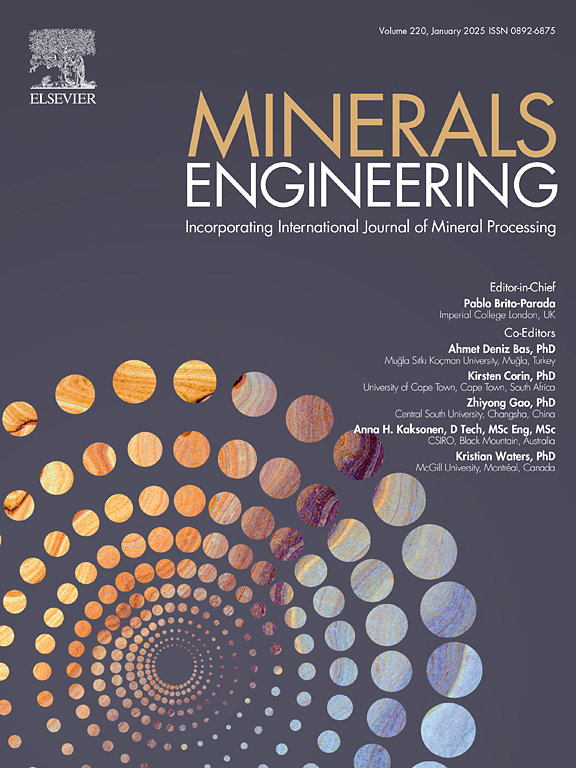低品位超基性镍矿石的加工:重要综述
IF 4.9
2区 工程技术
Q1 ENGINEERING, CHEMICAL
引用次数: 0
摘要
镍(Ni)用于制造各种产品,包括各种合金(不锈钢是其中最重要的一种)、电池和催化剂。预计到 2050 年,全球镍需求量将比 2017 年增长高达 350%,而高品位硫化镍矿床已基本耗尽。电动汽车和能源存储等新兴市场对镍的需求不断增加,需要更新的镍资源。此外,硫化镍矿的系统勘探导致资源因杂质较多而更具加工难度。加工的复杂性要求开发新的技术和途径,对全球丰富的低品位硫化镍矿石进行可持续加工。这项工作系统地回顾和比较了各种镍资源的组成、存在、挑战和机遇。同时还讨论了低品位超基性镍矿的传统加工方法和新兴技术。此外,还提供了将基础研究与应用研究相结合的主要挑战和未来展望。本文章由计算机程序翻译,如有差异,请以英文原文为准。
Processing of low-grade ultramafic nickel ores: A critical review
Nickel (Ni) is used to fabricate a variety of products, including various alloys- stainless steel being a prominent one, batteries, and catalysts. Global Ni demand is projected to increase by up to 350% by the year 2050 relative to 2017, while the high-grade Ni sulfide ore deposits have largely been depleted. The increasing demand for Ni from emerging markets such as electric vehicles and energy storage requires newer sources of nickel. In addition, the systemic exploration of nickel sulfide ores has led to resources that are more challenging to process due to the higher impurities. The processing complexity necessitates the development of new technologies and pathways to sustainably process globally abundant low-grade Ni sulphide ores. This work systematically reviews and compares various Ni resources in terms of their composition, occurrence, challenges, and opportunities. The conventional processing methods of low-grade ultramafic Ni ore are discussed along with emerging technologies. Key challenges remaining and future perspectives that tie together fundamental and applied research are also provided.
求助全文
通过发布文献求助,成功后即可免费获取论文全文。
去求助
来源期刊

Minerals Engineering
工程技术-工程:化工
CiteScore
8.70
自引率
18.80%
发文量
519
审稿时长
81 days
期刊介绍:
The purpose of the journal is to provide for the rapid publication of topical papers featuring the latest developments in the allied fields of mineral processing and extractive metallurgy. Its wide ranging coverage of research and practical (operating) topics includes physical separation methods, such as comminution, flotation concentration and dewatering, chemical methods such as bio-, hydro-, and electro-metallurgy, analytical techniques, process control, simulation and instrumentation, and mineralogical aspects of processing. Environmental issues, particularly those pertaining to sustainable development, will also be strongly covered.
 求助内容:
求助内容: 应助结果提醒方式:
应助结果提醒方式:


